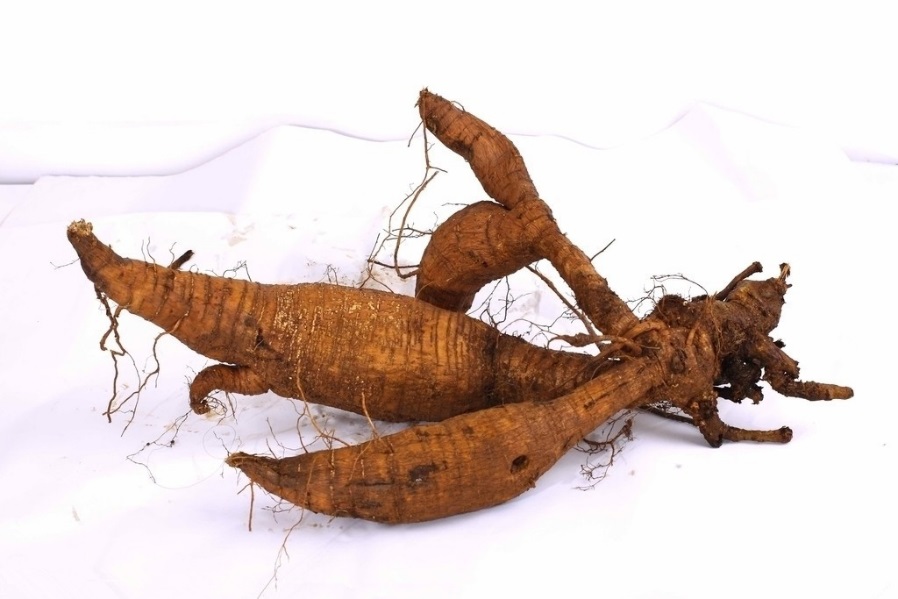Kudzu Root Benefits
1. May Help Treat Alcoholism
Kudzu root has been given the honor of helping reduce the painful effects of a hangover, though it seems that if overused, it could be more harmful than good. However, studies have shown that it may help reduce alcoholism. It does this by raising the alcohol levels so the person using it gets the effect of alcohol without drinking as much.
A study published in Psychopharmacology involved four weeks of treatment of 17 men ages 21–33 years old. These men reported drinking 27.6?±?6.5 drinks/week with a diagnosis of alcohol abuse and/or alcohol dependence. They consumed either kudzu extract or matched placebo on a daily basis.
The subjects were asked to report on their alcohol consumption and desire for alcohol. While there was no effect on the craving for alcohol, the kudzu extract actually reduced the number of drinks consumed each week by 34 percent to 57 percent and decreased the number of heavy drinking days. Additionally, the kudzu extract significantly increased the number of days with no alcohol, including consecutive days. (1)
Interestingly, the BBC did its own little study and found that subjects who consumed the kudzu supplement prior to drinking actually consumed 20 percent less alcohol than usual. More studies are needed, but kudzu could be promising for those battling alcoholism. (2) This, in turn, could help prevent or treat cirrhosis and other alcohol-related conditions as well.
2. Fights Disease by Reducing Inflammation
We know that inflammation is a big cause of numerous diseases and the immediate go-to is typically an over-the-counter synthetic medication. However, kudzu may be an alternative option. According to research published in Oxidative Medicine and Cellular Longevity, subjects were given kudzu root, also known as Pueraria tuberosa, to see if it reduced inflammation. The findings concluded that not only did it reduce inflammation, but it exhibited antioxidant properties, making it a possible alternative to commercial medication. (3)
3. Eases an Upset Stomach
The Preventative Medicine Center (PMC) suggests kudzu as a remedy for an upset stomach caused by digestive issues. Kudzu helps improve bowel movements and can ease digestion. The PMC suggests that combining kudzu with umeboshi plum is best because the umeboshi plum neutralizes excess acid, a much needed result since too much acid can cause diarrhea.
The kudzu has a thick, viscous consistency, similar to the gastric mucus, which coats the stomach and protects it from excess hydrochloric acid. Umeboshi plum, which is strongly alkaline, neutralizes the harmful effects of excess stomach acid. Together, they benefit the digestive system, even offering relief from stomach ulcers and heartburn. The fiber in kuzu, in combination with the anti-inflammatory effects of umeboshi, are helpful in easing the symptoms of acute diverticulitis and irritable bowel syndrome. This combination can also relieve leaky gut syndrome. (4)
4. May Stop Hot Flashes and Night Sweats
Kudzu is thought to help to treat menopausal and perimenopausal symptoms, such as hot flashes and night sweats, due to its estrogen-like characteristics. Though research on kudzu for symptoms of menopause has been conflicting, some studies suggest that taking kudzu by mouth can reduce hot flashes and improve vaginal dryness in women going through menopause. Additionally, it might help improve mental abilities of postmenopausal women. (5)
The Centre for Food Safety in Hong Kong indicates that the roots of Pueraria mirifica (also known as Thai kudzu), which has been consumed by native Thai for generations for relief of postmenopausal symptoms, works due to its phytoestrogen contents, including isoflavones, deoxymiroestrol and miroestrol. Pueraria mirifica is found as an ingredient in some foods or in dietary supplements for improving hot flashes and night sweats in perimenopausal and post-menopausal women, while reducing blood lipids. (6)




 Contact Us
Contact Us

 Hospitals
Hospitals
 Doctors
Doctors
 Diagnostic
Diagnostic
 Pharmacy
Pharmacy
 Health Tips
Health Tips
 Blog
Blog
















Comments